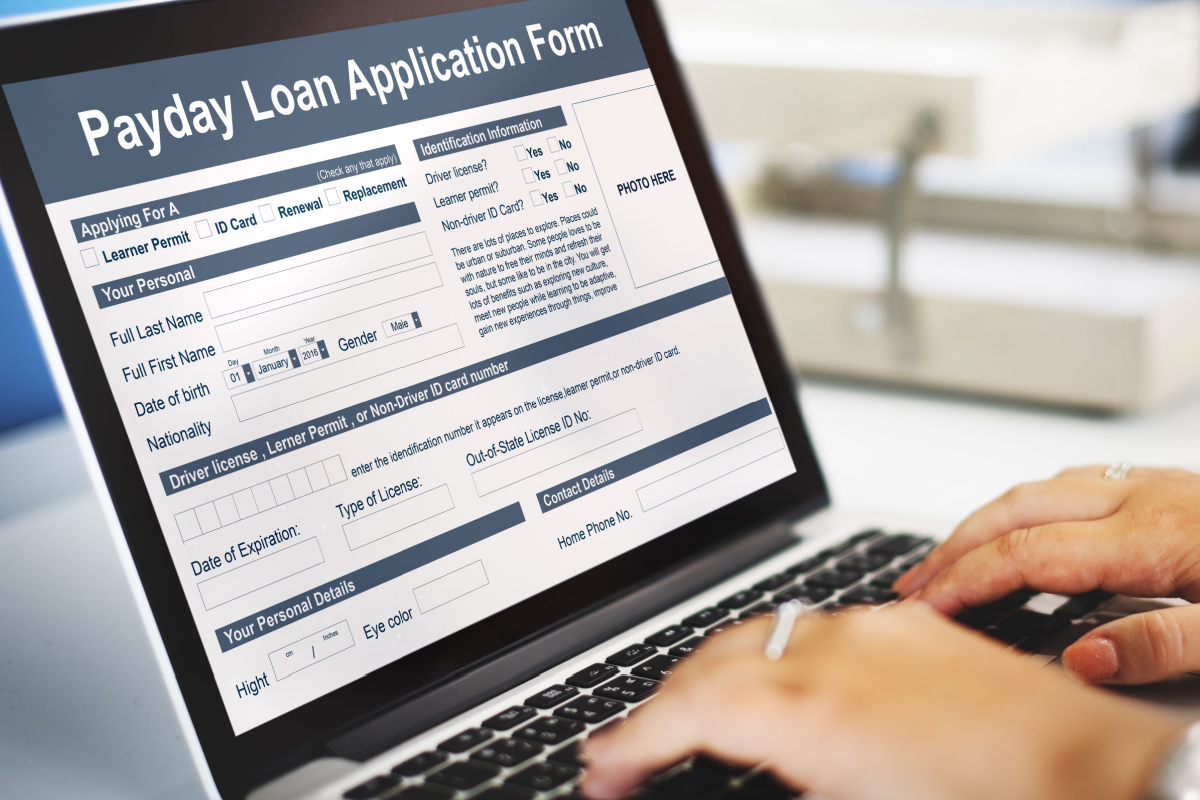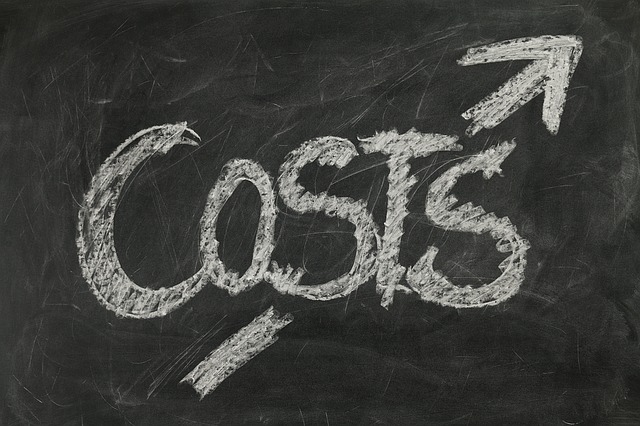Tribal Loans: Comparing Native American Installment & Payday Options
Learn all about tribal loans, an option that may help cover your financial needs, from bills to emergencies.
According to a recent report on the economic well-being of U.S. households, millions of Americans find themselves without access to traditional banking services. This gap in the financial landscape has paved the way for alternative lending solutions. Among these, tribal nations stand out, offering a range of financial services tailored to meet the unique needs of these underserved individuals.
Dive in with us as we delve into the world of tribal loans, understanding their significance and how they're bridging the financial divide.
What Are Tribal Loans?
Tribal loans, facilitated by Indigenous American institutions, allow individuals to access small sums of money that can be used to address immediate financial emergencies or large bills. Tribal loan applications are open to anybody seeking a loan and are typically available as payday, short-term, or installment loans.
These transactions occur inside a sovereign tribal state where federal and state financial agencies do not have as much jurisdiction and rather operate within the regulatory limits of tribal law.
There are over 500 recognized sovereign tribal nations, often called Indian Tribes, in federal legislation. In the U.S., Tribal nations have sovereign authority to form their own lending regulations. This means commercial activities are regulated under the applicable tribal laws rather than U.S. federal or state laws.
This unique position allows tribal lenders to offer certain loan products, such as payday or installment loans, even in states where such loans might be restricted or capped by interest rate limits.
The Tribal Financial Services Association (TFSA) is an organization that represents Native American-owned financial service providers, including lenders operating within tribal jurisdictions. It advocates for the sovereign rights of its member tribes, ensuring that they can provide responsible financial services to consumers. TFSA also establishes best practices and standards to promote ethical lending and protect both the tribes and consumers from fraudulent practices.
Understanding the Terms and Conditions of Tribal Loans
Given the unique sovereign status of tribal lenders, it's important for borrowers to understand the specific terms and conditions of tribal loans, as they often differ from state-regulated loans. Here is some information on typical offerings among tribal loans:
Loan Amount and Duration
Tribal loans typically range between $100 and $2,000. The loan duration can vary from a few weeks up to two years, based on the agreement and the lender's requirements.
Sovereignty and Regulation
Tribal loans are provided by indigenous American tribes that function under their own sovereign jurisdictions. As a result, they may not always adhere to state lending regulations, which can lead to reduced consumer protection. Less regulation can mean higher interest rates or more additional fees.
Interest Rates
Tribal loans often have elevated interest rates, sometimes exceeding 300% APR. Their sovereign status means they don’t need to adhere to federal or state lending regulations like interest rate caps.
Fees and Charges
Many tribal lenders impose extra charges such as loan origination, late payment, and rollover fees. These additional charges can significantly raise the total borrowing cost. According to the Consumer Financial Protection Bureau (CFPB), these fees often run around 15% – meaning a loan of $100 could have a $15 fee on top of the loan amount and interest.
Arbitration Clauses
Many tribal loan agreements incorporate arbitration clauses that require borrowers to address disputes through arbitration rather than in court. This process is a way for businesses to settle legal matters out of court through a self-appointed arbitrator who makes binding decisions instead of a court judge. This process can be faster and cheaper; however, parties are limited in their appeal options.
Potential Risks and Benefits
Tribal loans present an opportunity for quick financial relief, especially for those lacking other credit avenues. However, borrowers should be aware of the associated risks, including high interest rates, fees, and limited regulatory oversight.
Specifics of a tribal loan might differ across lenders. Hence, always carefully review the terms and conditions before committing to an agreement.
Advantages & Disadvantages of Tribal Cash Loans
As with any loan, there are many factors that can make borrowing more or less beneficial for your circumstances. Let’s take a look at some of the most common advantages and disadvantages of a tribal loan:
Benefits of Tribal Lending
Significant portions of Americans do not have access to quick financial services within their community, and tribal lending can offer the following benefits:
- Quick and Accessible Funding: Tribal loan applications can be completed 24/7 online, which means your application can begin anywhere with Internet service. Lenders typically respond quickly, within a few days at the longest or a few minutes at the shortest. This can be helpful in cases of financial urgency.
- Fewer Requirements: Traditional loans often rely on rigorous approval requirements, which can make it difficult for people with less-than-perfect credit histories to get approval. Tribal loans often have fewer requirements, which can be particularly beneficial for those who might be turned away from traditional lending institutions due to past financial mistakes.
- Variety of Uses: Tribal loans can be used for a number of purposes, such as medical payments, bills, rent, or automotive repairs. The flexibility allows borrowers to tailor the loan to their specific needs, which can be particularly valuable during financial emergencies.
Disadvantages of Tribal Lending
While getting cash faster can greatly relieve those struggling to make it to their next paycheck, there are dangers associated with taking out these types of loans.
- High-Interest Rates: Since tribal loans are not regulated by federal or state governments, there are no interest rate caps. This can result in higher-than-typical interest rates and repayments for borrowers.
- Additional Fees: Tribal loans often have higher fees than traditional loans, going as high as 15% compared to the average 3% to 6% fees for traditional loans. If you are taking out a larger loan, your repayment amounts may be larger, or your loan may take longer to pay off as a result.
- Less Legal Protection: Borrowers may have limited recourse in disputes or issues with the loan because tribal loans are not under federal or state jurisdiction. For instance, if a borrower feels they've been charged excessive interest or fees, state and federal regulators might have limited power to intervene due to the sovereignty of tribal nations.
Are You Eligible for a Tribal Loan? Navigating the Application Process
Eligible consumers 18 years and older can apply for a tribal installment loan.
 To be considered, applicants must meet a few requirements and provide the following information. These include:
To be considered, applicants must meet a few requirements and provide the following information. These include:
- A government ID or driver’s license
- Proof of employment
- Annual income information
- An active bank account
Applicants do not have to live on a reservation or be indigenous to be eligible for a tribal loan. Some tribal lenders will review credit history, but borrowers should note that tribal loan requirements can differ from lender to lender.
Can I Get Tribal Loans for Bad Credit?
While tribal loans are not ‘no-credit-check’ loan options, NAFSA may be able to offer financial support to individuals and families who are struggling monetarily. Consumers with poor credit can apply for a loan and see if they are approved. Applicants with bad credit are welcome to apply. However, they may find it more challenging to secure a loan, or it may come with higher interest rates. Some lenders may consider income alongside credit when determining eligibility.
What Is a Tribal Installment Loan?
Tribal installment loans are short-term financing options that borrowers pay back in smaller increments over a defined period of time.
Tribal lending installment loans can provide a short-term solution for those facing emergency cash needs or unforeseen monetary expenses. Loan amounts can range from $100 to $2,000, and consumers can use them for urgent or daily costs that may arise. These include:
- Emergency car repairs
- Medical expenses, including insurance copays or medication costs
- Home repairs
- Bills
- Child-related expenses
Tribal Loans vs. Payday Loans
When in need of quick cash, many consumers turn to either tribal loans or payday loans. However, the origins, regulatory environments, and potential impacts of these loans differ in significant ways.
Tribal loans originate from lenders affiliated with Indigenous American tribes. The unique status of these tribes allows them to bypass certain state lending regulations, giving them a broader range of freedom in terms of interest rates and loan terms.
This autonomy can benefit lenders but can also mean higher costs and fewer protections for borrowers. Offerings can include tribal payday loans, short-term loans, and tribal installment loans.
Payday loans, on the other hand, are more widespread and are offered by lenders operating under the specific regulations of the state in which they do business. These state laws can provide more protection to consumers by limiting interest rates, setting maximum loan amounts, and offering guidelines on repayment.
 However, despite these state-imposed limitations, payday loans can still be costly and carry risks for borrowers. These loans can also be more difficult to qualify for as there are more rigorous expectations from state-regulated lenders.
However, despite these state-imposed limitations, payday loans can still be costly and carry risks for borrowers. These loans can also be more difficult to qualify for as there are more rigorous expectations from state-regulated lenders.
While both options may offer quick financial relief, borrowers should proceed with caution and stay mindful of the financial implications of their decisions. Before opting for either loan, it's advisable to explore all possible alternatives and carefully review the terms and conditions of the loan.
Consumer Protections for Tribal Loans
When looking for a tribal loan, one of the most reliable places to check is with NAFSA-affiliated groups. For a lender to be a member of NAFSA, they must follow NAFSA Lending Best Practices. NAFSA’s guidelines are in place to prevent predatory lending practices such as exorbitant interest rates.
Before receiving a loan, lenders must inform consumers of the exact repayment schedule, the amount of every payment, repayment options, and all APR charges and conditions. Lenders are also required to provide proper channels for borrowers to file complaints and disputes, should they have any.
Despite such protections, the U.S. government has no legal authority to hold tribal lenders accountable for any predatory practice, and therefore, borrowers should take caution when selecting a lender.
Borrowers should also note that a growing list of states have banned tribal lending. As of 2023, the following 18 states and one district have made tribal payday loans illegal:
- Arizona
- Arkansas
- Colorado
- Connecticut
- District of Columbia
- Georgia
- Maryland
- Massachusetts
- Montana
- Nebraska
- New Hampshire
- New Jersey
- New Mexico
- New York
- North Carolina
- Pennsylvania
- South Dakota
- Vermont
- West Virginia
Residents should be informed of the rules and regulations associated with tribal lending in their state before applying for a tribal loan and consider only opting for lenders who are licensed under NAFSA.
Advice for Potential Borrowers
If you are interested in applying for a tribal loan, there are some precautions to take to protect your finances. Read on for some helpful tips on finding the right loan for your needs.
- Assess Your Needs: Before taking out a loan, evaluate how much you truly need. Borrowing more than necessary can lead to larger interest payments and a more extended debt period. Beware of lenders who try to pressure you into taking out a larger loan than necessary or try to convince you to roll over pre-existing loans into a larger loan.
- Research the Lender: Always check for reviews or feedback about the tribal lender. Previous borrowers' experiences can provide valuable insight into the lender’s reputability and customer service. Also, confirm the lender is licensed and check if they are a NAFSA member.
- Understand the Terms: Always read the loan agreement carefully. Familiarize yourself with interest rates, fees, repayment terms, and any penalties for early payment or defaulting on a tribal loan.
- Plan Repayment: Ensure you have a clear plan arranged to repay your loan. Set aside funds from your income or savings specifically for this purpose. Also, consider multiple factors like other loan repayments and consistent expenses when creating a repayment plan to ensure that you can keep up with the repayment amount and will not fall behind on payments in case of unexpected conflict.
Big Names in Tribal Lending
If you’re interested in applying for a tribal loan, here are some of the tribal lenders active in the market today:
- Blue Trust Loans
- Inbox Loan
- Big Picture Loans
- Great Plains Lending
- Lend Green Installment Loan
- Action Payday
- SWIFT Payday Loans
- Loan At Last
- Mobi Loans
- 500FastCash
- Myflexcash
- Lakota Cash
- Cash Fairy
The Future of Tribal Loans
In the past few years, tribal lending has endured a tumultuous period. U.S. states, in conjunction with the CFPB, began filing lawsuits and exacting consequent fines on tribal lenders.
As a result, some tribal lenders are unable to remain operational. Note that this does not mean that tribal loans are going to disappear. While these shifts have reduced the number of tribal lenders, many remain strong – especially those associated with NAFSA.
Conclusion
Tribal loans provide a unique borrowing option for many individuals. Like any loan, they come with repayment terms, fees, and associated interest rates, but they provide unique requirements and have different regulations than traditional loans.
Depending on your circumstances, tribal loans might provide you with financial assistance during emergencies.





